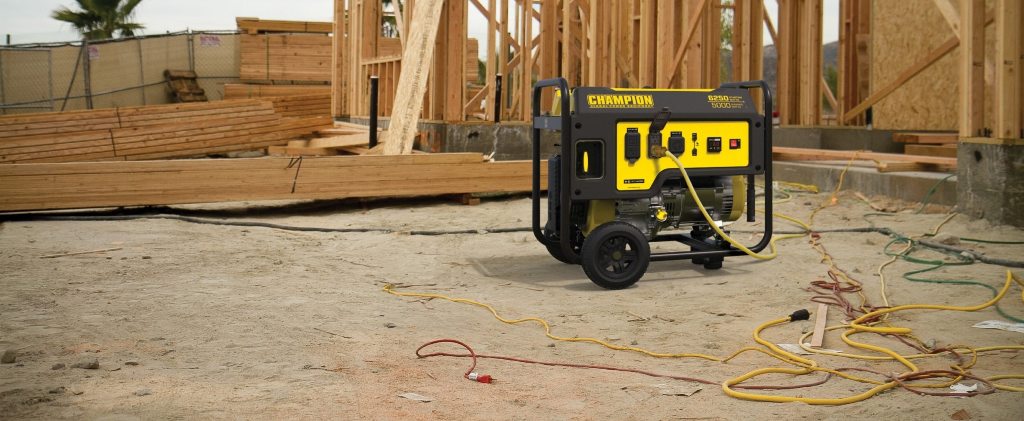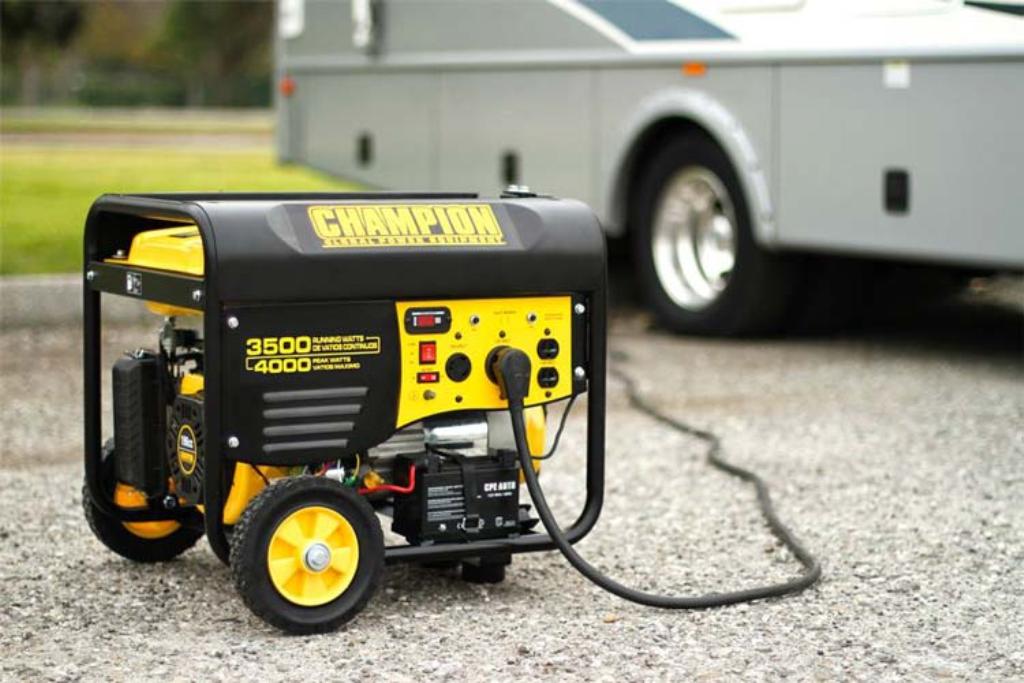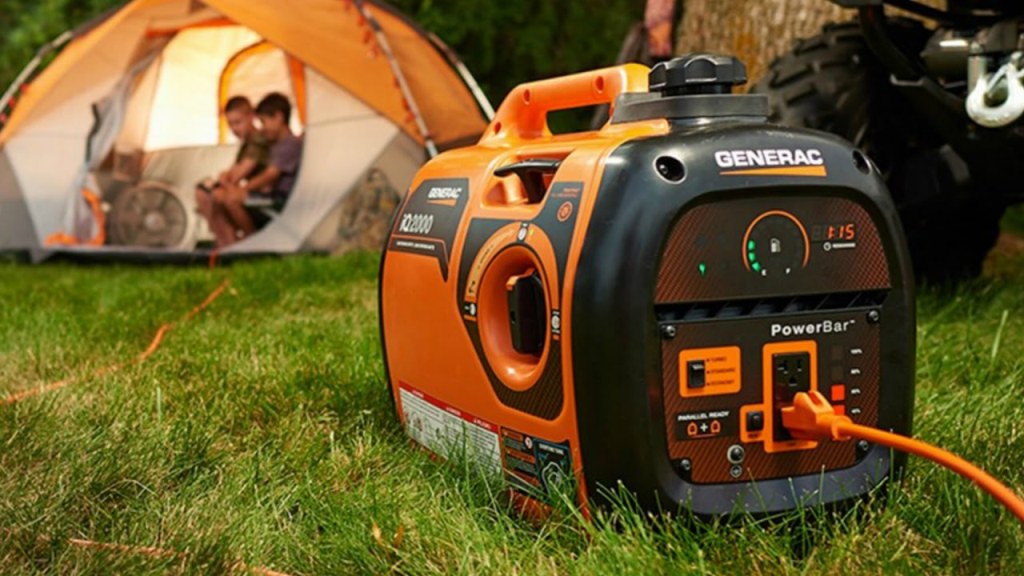Running a business is no easy task. With so much relying on the internet and electricity, from phones to computers, a power outage can quickly become a huge blow to the production rate.
Luckily, with the introduction of generators for businesses, you don’t have to worry about this happening to you. However, choosing the right generator can be tricky and many business owners feel powerless about making the right choice.
Here are a few tips to keep in mind before you invest in your new generator.
What Will You Use the Generator For?
Generators vary according to size and the type of loads they can handle. You can determine the type of generator you’ll need based on your power usage.
Calculate the total power used by your business by taking note of all the electrical appliances and how often you use them. You’ll also have to allow for unexpected extra power usage, such as the times you’ll have to start multiple generators at once.

Alternatively, businesses may devise a strategy that uses only the most important devices during a power outage. Another strategy is to start one generator and wait for it to reach full speed before using the others.
Where Will You Keep It?
A generator is not small; it takes up considerable space. Therefore, the location is an important factor to keep in mind before you invest in a generator. It’s not ideal to keep it inside because of the harmful carbon monoxide emissions.
Where you decide to store your generator depends on the type of business you have and your office space. If you wish to keep the generator out of sight, a screen wall, penthouse or the roof are ideal options.
Climate is another factor to consider. For example, if a screen wall is used, there must be enough space between the generator and walls to allow adequate cooling. Leaves must be removed during fall and ice must be scraped off in the winter.
A roof is a good choice in flood-prone areas and a penthouse helps to keep the unit at room temperature during the cold season. However, increased vibrations and installation costs are some drawbacks to these locations.
Which Type of Generator Should You Choose?
Generators are usually portable or stationary. Although portable generators are cheaper and useful in an emergency for small firms, standby generators are still a more preferable option for larger businesses.
Stationary generators automatically start operating whenever the power source is interrupted and create electricity until the grid power has returned. They are more suitable for heavy-duty industries and businesses as they’re also able to power more devices for a longer period of time.
Generators are essential in an industry or business where every minute counts and a power outage can have a drastic impact.
In these cases, parallel or synchronized generators are ideal because if one generator fails, the other can keep working. For more information on parallel generators, check out the variety of generators on the KrugerPower website.
Which Size Is Appropriate?
The location and size of your establishment will play a big role in the type of generator you choose. Small generators take up less space but can only handle a small load so they’re not sustainable for big businesses.
Stationary generators also take up a considerable amount of space and should be kept in a well-ventilated area. It should be kept in a good location where its noise won’t inconvenience the staff.

If you’re still in doubt, seek professional guidance to choose the right size generator for you.
Dealing with the Noise and Vibration
Perhaps the biggest issue with generators is the noise and vibration they cause. If your business is large enough, keeping the generator outdoors will generally solve the problem. However, the problem arises in small facilities and residential areas when this isn’t always possible.
Residential areas often have stricter regulations than commercial areas do. Changing the operating hours can be a solution. During business hours, noise restrictions are less strict than in the evenings. Therefore, by operating only during business hours, it will be easier to get zoning permits from suburban businesses.
If the generator is kept indoors, make sure that you surround it with storage areas, data centers, loading docks, and other less frequented areas to decrease the flow of traffic. The exhaust, engine block, and air intake are the biggest sources of noise that can be minimized by using a muffler or silencer.
As all generators provide vibrations, it’s preferable to keep them outdoors because indoor generators may be an inconvenience. In such cases, invest in high-quality vibration isolation materials.
Choosing the Ideal Fuel
Choosing the right fuel is important when selecting generators. Despite the difference in the cost of fuels, a general rule is that natural gas fuels are less expensive below the range of 150 kW, while diesel is more cost-effective above 350 kW.
Natural gas can be delivered using utility pipelines with an unlimited supply, whereas propane and diesel require storage and delivery. Diesel is not a suitable option where power outages last for days. Besides, cleaning up any diesel spillage is costly.
However, diesel generators are more fuel-efficient, durable and require less maintenance than petrol generators. Therefore, diesel generators are more suitable for large businesses.
Keeping Up with the Details
If you’re working on a generator, you should bear in mind that they distribute their power via transfer switches. In outdoor generators, this occurs via transfer switch rooms which should have a fire rating and some emergency panels.
Additionally, any potential problems with exhausts should be addressed. Exhaust air can mix with HVAC air intake. This problem can be solved with an appropriate building design, exhaust piping and adsorption filters.

Post Installation Maintenance
The project isn’t complete just by installing the generator, its maintenance is also crucial. Have an emergency shut off button and sign to help in case of an emergency. There must also be a plan in place for emergency fueling otherwise you run the risk of the entire production being shut down.
Any user manuals, procedures, maintenance schedules, instructions, and information about what systems are covered by the generator must be well documented and archived clearly for quick referral when necessary.
Cost
Generator prices vary depending on the type. As a business owner, you have to determine whether the cost and maintenance of the generator benefits the business. There’s no point in spending a large sum of money on a generator that’s costly to maintain yet doesn’t provide enough power.
Conclusion
Generators are an essential and costly business investment. Thus, it’s important to think carefully and do enough research before you decide to choose a generator.
A good generator will sustain your facility for two decades or more. There are many generator types on the market but the above guide will help you narrow it down to the one best suited to your needs.
A good generator is a treasured asset that will save your business from any lost profits due to a power outage.








